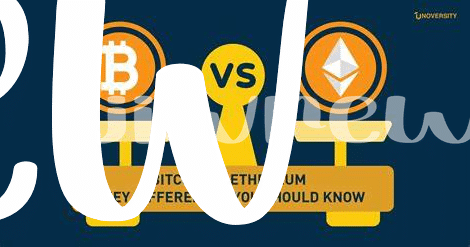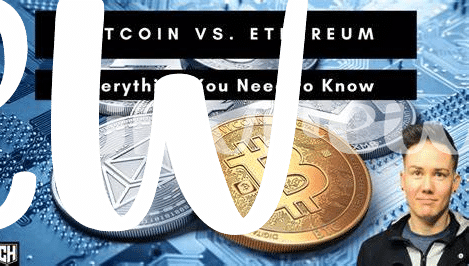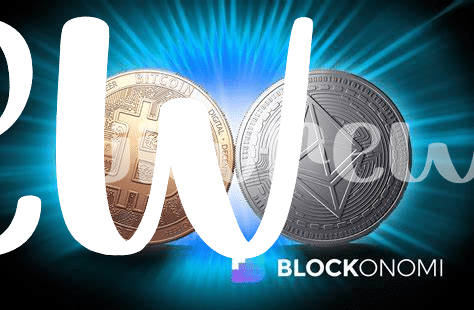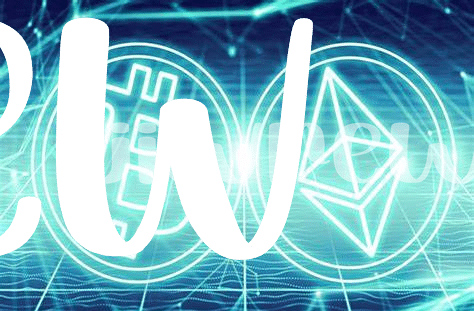The Dawn of Blockchain: Enter Bitcoin 🌅

Once upon a time in the digital world, something revolutionary happened. Imagine a time when trust was a currency, and people wondered if there could be a way to exchange value without needing a middleman, like banks, to say it was okay. Enter the hero of our story: Bitcoin. It wasn’t just another digital currency; it was the first of its kind, a way to send money across the internet directly from one person to another, securely and anonymously. Bitcoin introduced us to the magic behind it all, blockchain technology, essentially a digital ledger that records every transaction across a network of computers. This was groundbreaking because it meant that the information couldn’t be controlled or tampered with by any one person, making Bitcoin a trusty and transparent way to exchange money. It was like a collective bookkeeping system that everyone could see, but no single person could mess with. This idea of blockchain was about to spark a revolution in how we think about and use money online, setting the stage for a future where digital currency was just the beginning.
| Year | Event | Impact |
|---|---|---|
| 2008 | Bitcoin Whitepaper Released | Introduction of blockchain technology to the world |
| 2009 | Bitcoin Network Goes Live | First practical implementation of blockchain, enabling peer-to-peer transactions without intermediaries |
Bitcoin’s Limitations Sparks Innovation 🔍
Even though Bitcoin introduced the world to the concept of digital currency, imagine it as the first car ever made – revolutionary, yet not perfect. Its design was groundbreaking, offering a way to send money across the world without the need for traditional banks. However, just like those early cars couldn’t go very fast or far, Bitcoin had its limits. It was great for transferring money, but that’s pretty much where its capabilities ended. This sparked a wave of innovation. Think of it as creative minds seeing the first car and thinking, “What if we could do more?” This led to the development of Ethereum, a new platform with a much bigger vision. Ethereum didn’t just want to be digital cash; it aimed to be a foundational layer for a whole new internet – a space where any digital application could run freely, safely, and without the need for a middleman. For more insights into this evolution, take a peek at https://wikicrypto.news/exploring-next-gen-blockchain-innovations-beyond-cryptocurrency to explore how smart contracts, Ethereum’s innovative feature, are paving the way.
Ethereum Arrives: More Than Just Money 💡

When Bitcoin introduced us to the idea of money that could move around the world as easily as an email, it was a revolution. But there was a new kid on the block that would take this idea and run even further with it. Imagine a world where not just money, but any kind of agreement or contract, could operate independently, without needing a middleman like a bank or lawyer. This is where Ethereum comes into play, offering a wider platform where these agreements, known as smart contracts, can live on the internet. Ethereum opened up possibilities far beyond just buying and selling, making way for a whole new world of decentralized applications (dapps) that can do everything from lending money to buying virtual land, all without a traditional boss in charge. It’s like if the internet got a huge upgrade, making more than just financial transactions decentralized—it’s about making everything we do online more democratic.
Smart Contracts: Ethereum’s Game Changer 🎮

Imagine sending money to a friend, but only if they complete a task for you first. This is the magic of what Ethereum brought to the table with its revolutionary feature. Unlike Bitcoin, which is mostly about sending and receiving digital money, Ethereum introduced the world to something called “smart contracts”. Think of them as little computer programs that live on the blockchain and work automatically. They follow simple “if this happens, then do that” rules. For instance, a smart contract could be set to release money on a specific date, no bank or lawyer needed! This innovation opened the door to a whole new world of possibilities, not just for money but for all kinds of agreements and transactions, no cheating or backing out possible. It’s like having a robot mediator that ensures everything goes according to plan, every time. For a closer look at how Ethereum expands on Bitcoin’s foundation, check out what is bitcoin versus ethereum. The advent of smart contracts transformed the blockchain from a simple ledger for recording transactions to a powerful platform for decentralized applications. Now, developers could build and run applications that automatically execute agreements, without any downtime, fraud, or interference from a third party, shifting the internet’s gears towards a more secure, autonomous, and efficient future. 🚀🎲
From Digital Cash to Decentralized Applications (dapps) 🌐
Imagine a world where you can not only send and receive money online without needing a bank but also build complex projects, like a virtual marketplace or a voting system, all running on the internet without a central boss. This leap from simply acting as digital cash to enabling a whole new world of online projects is thanks to something called decentralized applications, or “dapps” for short. These dapps run on a network of computers that together make sure everything works as it should, rather than one single computer calling all the shots. It’s like moving from a game where one person makes up and enforces all the rules to a community game where everyone agrees on the rules and ensures they’re followed. Ethereum made this possible with its introduction of smart contracts, which are basically self-operating programs that automatically enforce the rules of the dapp. This opened up endless possibilities for not only financial transactions but any kind of application you can think of that can benefit from operating in a trustless, decentralized manner.
| Feature | Bitcoin | Ethereum |
|---|---|---|
| Primary Use | Digital Cash | Decentralized Applications |
| Technology Base | Blockchain | Blockchain & Smart Contracts |
| Capability | Transfers value | Transfers value & runs programs |
Future Visions: Beyond Ethereum’s Horizons 🚀

As we look to the stars and dream about what’s next, the journey of blockchain technology takes us far beyond the familiar landscapes of Bitcoin and Ethereum. Imagine a world where everything from your daily coffee purchase to voting in national elections is securely and transparently conducted through blockchain technology. This isn’t just idle daydreaming; it’s a realistic preview of the innovations on the horizon. Efforts are already underway to make blockchain more energy-efficient, faster, and even more secure, propelling us into a future where digital identity, asset ownership, and even our digital footprints are managed in a completely decentralized manner. 🚀✨
But what does this mean for our everyday lives? In simple terms, it could revolutionize how we interact with the digital world, making our online activities more secure and giving us more control over our personal information. As blockchain evolves, it could also democratize access to global financial systems, especially for those currently underserved by traditional banking. The possibilities are as vast as space itself, with ideas like decentralized finance (DeFi) and non-fungible tokens (NFTs) just beginning to hint at the future. For a deeper understanding of how the current state of blockchain compares to historical assets, you might find this exploration intriguing: how does bitcoin compare to gold and the blockchain. It’s a journey just beginning, but one that promises to redefine our digital frontiers. 🌍🌌
